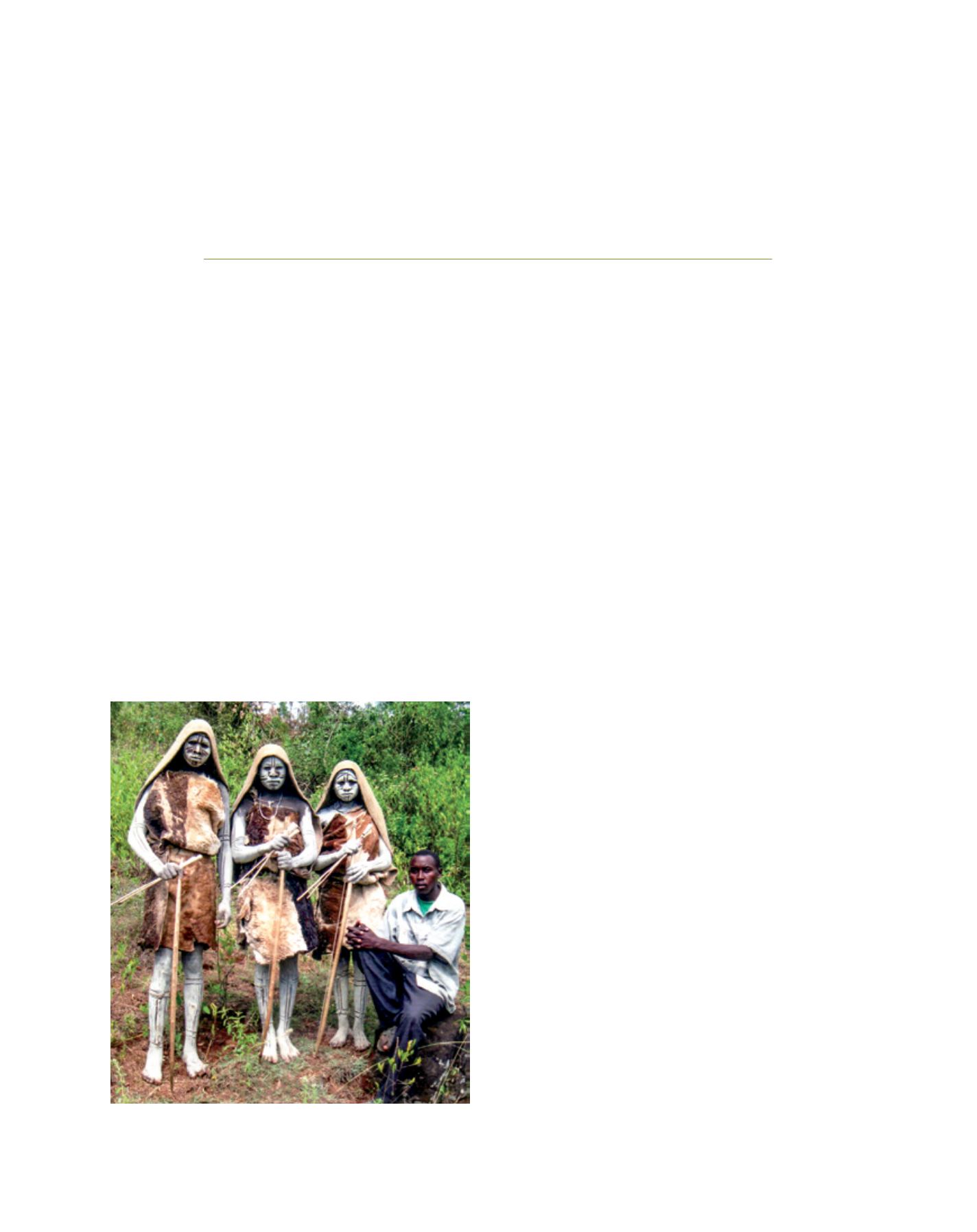

[
] 154
Five pillars from African traditional
education offer hope for global cohesiveness
and the rapprochement of cultures
Professor F.X. Gichuru, Founder and Chair, African Cultural Regeneration Institute
T
he International Decade for the Rapprochement of
Cultures (2013-2022) was launched in Kazakhstan
by the Director General of the United Nations
Educational, Scientific and Cultural Organization, Irina
Bokova, in August 2013. The decade is expected to
promote mutual understanding and respect for diver-
sity, rights and equal dignity between peoples. Indeed,
we need a renewed commitment by all to dialogue, toler-
ance, reconciliation and understanding. Irina Bokova
underlined that it is not enough to live together; rather,
societies must grow together, not only by exchanging but
more importantly by sharing.
The following discussion takes the theme of building a
framework for commonly shared values which fosters social
cohesion. It is based on five pillars that we consider the core
of African traditional education (ATE), in the sense that when
we look at the panorama of the African traditional mode of
education (the system of values that were inculcated from
childhood and reinforced during initiation rites to adult-
hood), the qualifications that sanctioned such education
included the adoption of five pillars: self-discipline, self-drive,
integrity, harmony and patriotism. In other words, the child
in Africa was expected to achieve those five qualities in life
so that he or she may live successfully in society and be able
to run a family unit with success. A child was brought up to
be able to take care of him or herself and others, starting with
his or her family and extending to the community at large.
Being careless about the larger community was anathema in
Africa, which meant that individualism, or selfishness, was
discouraged. For that reason, the individual was educated to
be able to make decisions for the benefit of his or her family
and the community, and to execute necessary actions, without
waiting for orders from above. The precondition for integrity
was respect for oneself and for others.
Africa can lend the five pillars to the world in order to
promote responsible behaviour and cohesiveness of peoples.
Of course, we note the pathetic state of Africa where the tradi-
tional responsible citizenship and leadership qualities have
been replaced by imported values. Indeed, before telling the rest
of the world, Africa needs to revisit and adopt the five pillars
that governed its traditional society. The original discourse of
this extraction from ATE was entitled: ‘Five pillars to create a
new society, new nation, and new leadership quality’,
1
a theme
that can be extrapolated today to cover the global society that
needs new leadership quality. Such leadership should be guided
by the five pillars in order to enhance mutual understanding,
respect, dignity of peoples and cohesiveness. The achievement
of these ideals requires that children be brought up according
to the pillars. The theory and practice of each of the five pillars
is elaborated below, so that different cultures can adopt them
in their education systems.
Self-discipline:
Global society today is not built on this
pillar. People are trained to do things because they fear some
authority, not because they follow any specific moral princi-
ples. A child is trained to do things because he or she fears
the parent, the teacher or the older sibling. An adult does
things because he or she fears someone – a policeman, a boss
or other authority – not because he or she follows specific
principles. The philosophy of self-discipline teaches everyone,
starting from the very youngest child, to do things guided
Keiyo community, Kenya: initiation candidates graduate into new roles and
responsibilities as adults
Image: ACRI (2012)
A
gree
to
D
iffer

















